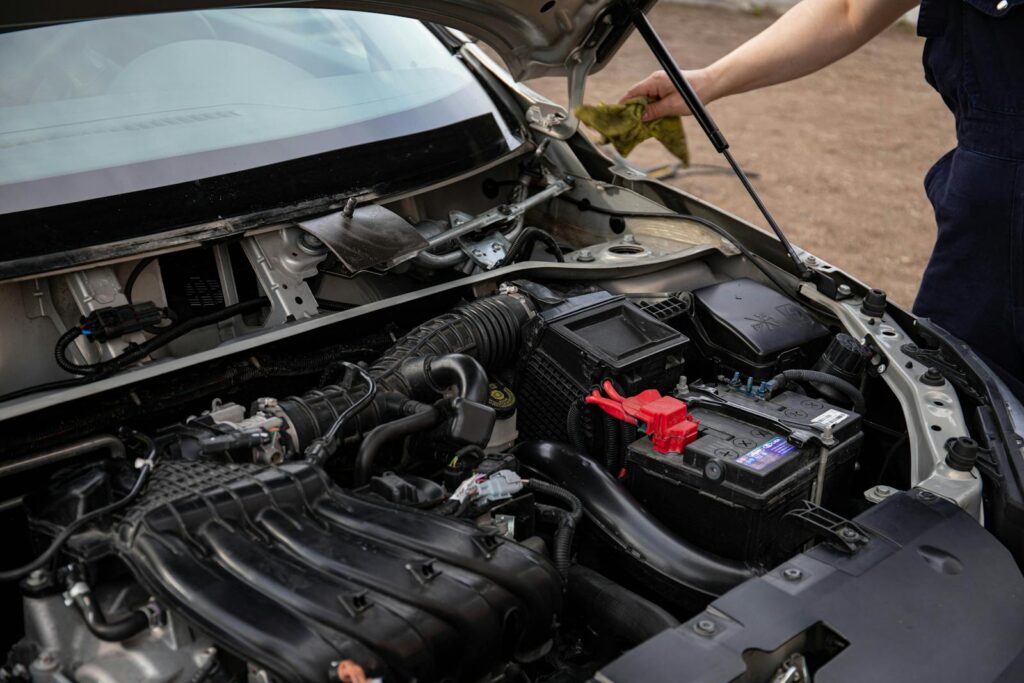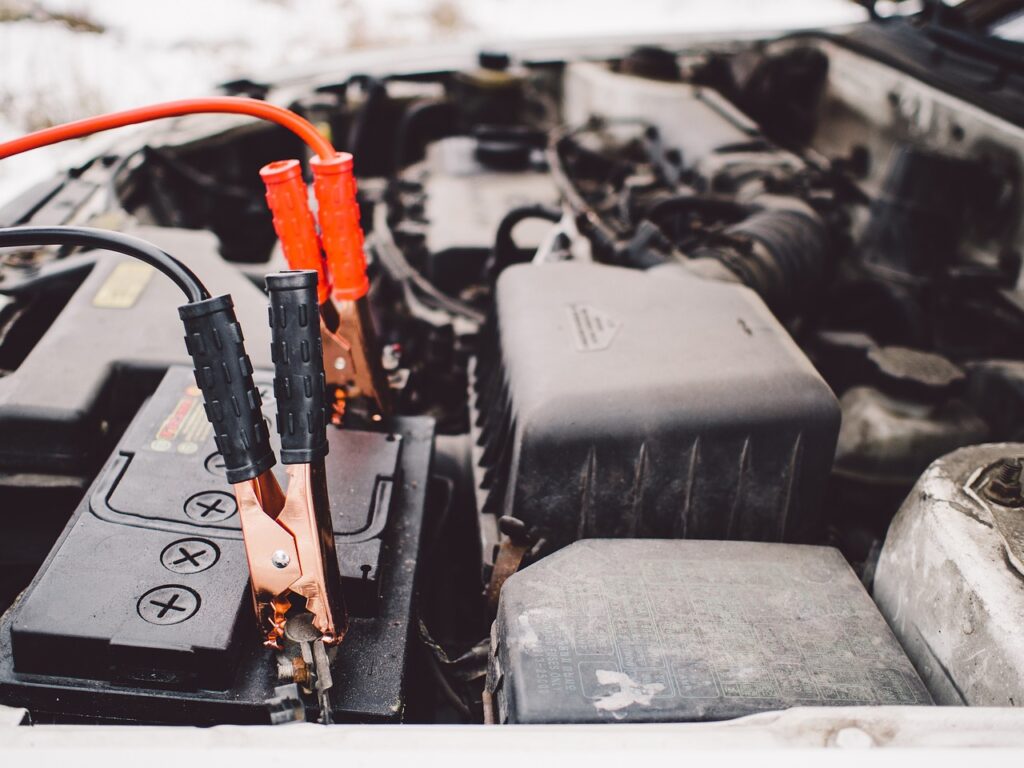Don’t Forget Your Battery During Scheduled Maintenance
Owning a vehicle is a significant investment. That doesn’t mean you should go bankrupt maintaining it. Scheduled maintenance keeps your car or truck in optimal condition without breaking the bank. That’s because preventing problems before they start usually saves vehicle owners in Albuquerque money in the long run.
Your vehicle’s battery is one of the most critical – yet overlooked – parts of the electrical system. It provides the power needed to start the engine and keep all electrical components running when you’re behind the wheel.
Neglecting battery maintenance can lead to unexpected breakdowns, costly repairs, and safety hazards. Let’s talk about why regular battery checks should be an integral part of your scheduled maintenance routine in Albuquerque’s unique climate.
What’s the role of a battery in my vehicle?
Your vehicle’s battery is the powerhouse of your electrical system. It primarily provides the electrical energy needed to start the engine. When you turn the key or press the start button, the battery sends a burst of energy to the starter, which in turn, cranks the engine to life.
A battery does more than simply give your vehicle the juice it needs to get started. It also powers all electrical components, including the interior and exterior lights, radio, and onboard computer systems. Without a functioning battery, your vehicle isn’t going anywhere.
Common misconceptions about vehicle batteries
It’s easy to forget about your battery. Most vehicle owners never give it a thought – until they turn the key or press the ignition button, and nothing happens.
One common misconception about batteries is they only need to be checked when they start to show signs of failing. Waiting for noticeable signs that your battery is at the end of its life can leave you stranded. Scheduled maintenance that includes a routine battery check is recommended.
Another misunderstanding is that modern batteries are maintenance-free. While advancements in battery technology have reduced maintenance needs, periodic inspections and cleanings are still necessary to keep your battery at peak performance.
What are the signs my vehicle’s battery is failing?
Recognizing the signs of battery failure can save you from inconvenient breakdowns and costly emergency repairs. Understanding why each of these symptoms is a warning sign can help you take proactive steps to address battery issues before they escalate.

One of the earliest signs of battery failure is difficulty starting the engine. You may notice a slow cranking sound or clicking noise when you turn the key. While it’s true that sometimes those signs point to an alternator issue, they can also signal battery trouble. It takes an automotive expert in scheduled maintenance to determine which is the culprit.
Some other signs something is amiss with your battery:
- Dim lights and other electrical issues
- Unusual battery odor that smells like sulfur
- Corroded connectors
The typical lifespan of a battery is between 3 and 5 years, depending on how you use your vehicle and the climate conditions. If your battery is getting old, it might be time to ask your mechanic to evaluate its life expectancy.
Why you shouldn’t overlook a battery check
A failing battery can lead to minor inconveniences to serious safety hazards. Regular battery checks are an essential part of scheduled maintenance that should never be overlooked.
One of the most critical consequences of a failing battery is the risk it poses to your safety. A weak or dead battery can leave you stranded in inconvenient or dangerous locations, such as along a busy highway, in an isolated area, or during extreme weather conditions.
Ignoring a dying battery can cause other malfunctions in your vehicle, including your headlights, brake lights, and turn signals, which can increase the risk of accidents.

Financially, a failing battery can lead to unexpected expenses that strain your budget. Emergency repairs are more expensive than scheduled maintenance because they can involve towing fees, expedited repair costs, and potential damage to other vehicle components strained by a weak battery.
How often to check your battery
Most automotive experts recommend checking your battery at least twice a year. These checks should ideally coincide with the change of seasons.
However, your vehicle might need more frequent battery checks under certain conditions. Albuquerque’s intense summer heat can quickly drain batteries and cause battery fluid to evaporate, so it’s probably a good idea to have yours checked more often during the summer months.
Your driving habits can also impact your battery’s performance and life. If you frequently take short trips, your battery might not get fully recharged, leading to a gradual loss of capacity. On the other hand, long periods of inactivity can also cause the battery to drain.
Scheduled battery maintenance prevents breakdowns
Including the battery in your scheduled maintenance checks can prevent inconvenient breakdowns, safety hazards, and costly emergency repairs. A well-maintained battery – especially in Albuquerque’s climate – keeps all your vehicle’s electrical components running reliably and smoothly.
Don’t wait for signs of a failing battery to visit your trusted mechanics at Rio Grande Automotive. Schedule your check by calling 505-242-3401.